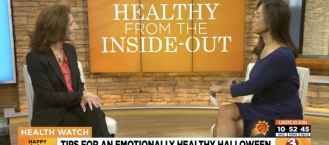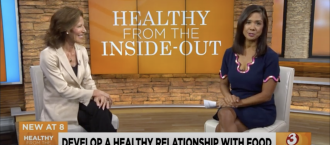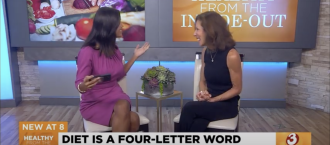Cheating with ED
by
Perhaps you’ve taken the vow “til death do us part” with your spouse or settled down with a life partner. Maybe you pride yourself on your commitment and loyalty to your partner, never straying from the relationship with another man or woman. But…if you are in a committed relationship AND affected by an eating disorder, then it is very likely that you are guilty of infidelity; leaving your partner to get your emotional needs met elsewhere, straight into the arms of ED (acronym for Eating Disorder).
You cry on ED’s shoulders when you’re feeling anxious and overwhelmed. You seek ED’s hug when you’re lonely and sad. You think about ED all day, sneaking in a few minutes here and there to be with him. You look forward to date nights alone with ED, when the two of you can be together without interruptions. You do everything in your power to keep this relationship a secret, hoping that your partner believes that you and ED are “just friends.”
If this sounds like you – looking outside of your intimate relationship to fulfill your emotional needs – then you are guilty of emotional infidelity, and ED is your partner in crime.
If you’re cheating with ED, it is important to explore why you look to ED, and not your partner, for emotional comfort, to understand what stops you from turning towards your partner and leaning into your relationship with him/her. Consider the following questions:
- As a child, how did you let people know that you needed comfort and connection?
- As a child, could you count on certain people to effectively provide you comfort and connection?
- As an adult, why does ED’s attention appeal to you more than your partner’s attention?
- Is there anything that ED gives you that you believe your partner cannot give you?
- How does ED make you feel about yourself? How does your partner make you feel about yourself?
- What do you think it would be like to share your feelings with your partner, rather than ED?
- Would you be willing to turn to your partner and share your deepest feelings and vulnerabilities?
- If not, why? What do you fear your partner will think of you if you share your feelings and vulnerabilities with him/her?
You may find it helpful to thoughtfully explore these questions in a private journal, or with a therapist who is trained in attachment-based therapy. Most people find that their answers to these questions generally fall into one of two camps:
1) As a child, you did have some people who you could rely on for comfort and connection. In your current relationship, you have tried to share your feelings with your partner in the past, but you felt let down, like your partner wasn’t able to be there for you or meet your emotional needs.
OR
2) As a child, you couldn’t count on anyone to reliably provide you comfort and connection, so you learned to just rely on yourself. In your current relationship, you’ve never really been able to share your feelings with your partner; turning towards him/her would feel too overwhelming, silly, or stupid.
Either way, what matters is that your emotional needs are not being met today in a healthy, fulfilling way; if they were, you probably wouldn’t need ED. You’re not able to reach for your partner during those tender moments of vulnerability and need; you’re not able to feel the powerful calm that comes from authentic emotional connection with another human being.
Instead, you turn toward ED in the hopes of feeling better. Your “flings” with ED give you a temporary high, a short-lived escape from the depths of distress. But your time with ED is cut short and the superficial relief you were feeling is now gone, replaced by more distress and guilt. Like an addiction, you need more and more flings with ED to temporarily satisfy you.
If you’re ready to end the affair with ED and get back to a meaningful, emotionally connected relationship with your partner, you must develop the ability to understand your own emotional needs and then communicate these with your partner. If this feels like an overwhelming task, work with a skilled therapist trained in eating disorders so that you can effectively explore these parts of you, with the ultimate goal of sharing these vulnerable parts with your partner.
Emotional connection in an intimate relationship is a profound experience. You feel safe and secure, as if this person has your back at every turn in life. You know that you matter to your partner, and that s/he fully embraces all parts of you, including your vulnerable self that needs to be needed and cared for. You allow yourself to be seen in full, knowing that you’re not alone in all of this.
So, the next time you find yourself planning a date with ED, stop and consider if you might be able to turn towards your partner instead. Risk to be heard, to be seen, to be loved.






